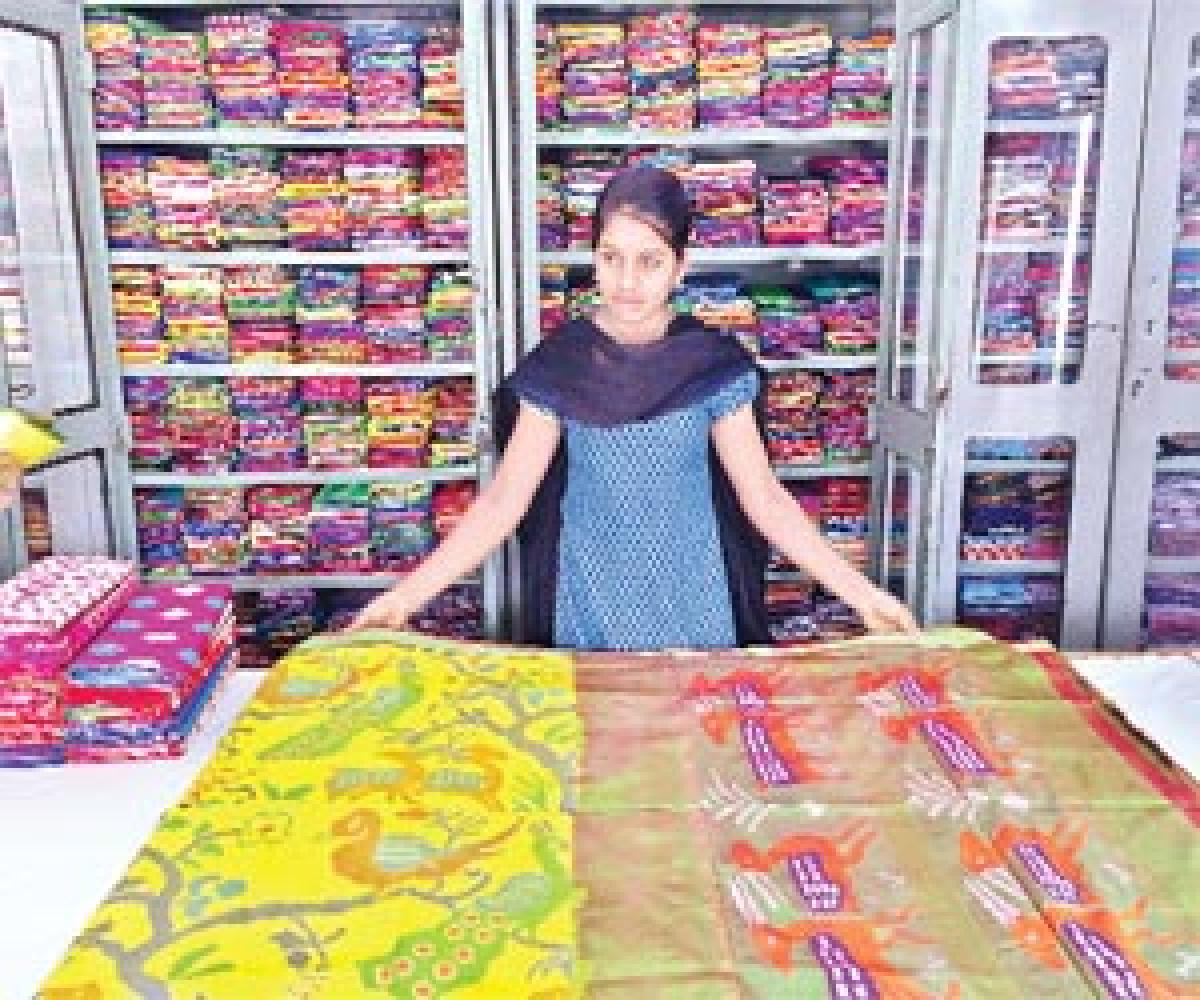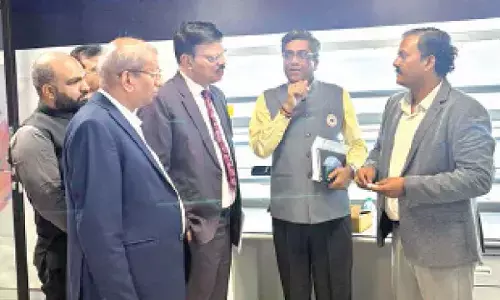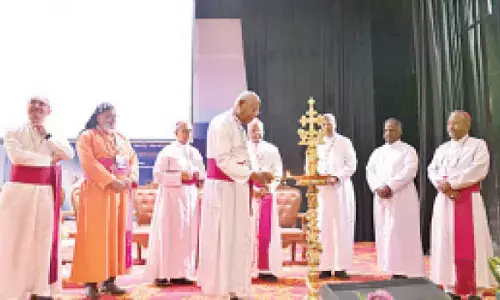Nimble fingers that weave magic

Some fifteen year ago, when I went to this village cluster as a thumbsucker, there was an eerie silence and a sinister vibe of bereavement and privation all around.
Some fifteen year ago, when I went to this village cluster as a thumbsucker, there was an eerie silence and a sinister vibe of bereavement and privation all around. There was no sound of handlooms, only suppressed wails of young widows as hundreds of its weavers were committing suicide due to lack of patronage to the alluring six yards of elegance for various reasons.
But after many years, when I was travelling by an Air India flight, I could not help ogling at the enchanting saris the cabin crew wore! Intricate texture, arresting patterns and awe-inspiring designs - my mind was full of adoration to the adept hands that interlaced the fabric. I never knew those saris were woven by weavers of Pochampally!
And, when I visited the cluster once again last weekend, I found a totally different picture. The vibrant township of Bhoodan Pochampally in the newly-formed Yadadri-Bongir district of Telangana State was clad in colourful silk. Lots of vehicles from various parts of Telangana and neighbouring States were parked in front of silk sari outlets that dotted the road.
Yes, business was thriving. Pochampally saris have got a glorious rebirth. While myriad shops and a cooperative society outlet made brisk business, the bylanes of the weavers’ village reverberated with the metrical sounds of handlooms. Women were either busy colouring the yarns or designing them, while men – the young and the old alike – where weaving magic at their looms.
And conspicuous among all equipment was Laxmi Asu Machine, a yarn winding machine invented by Chintakanti Mallesham, a school dropout who was deeply pained by the hard work of his mother, who did the thread winding manually. The manual asu works involved 18,000 to-and-fro movements for a single sari. It was tedious and taxing.
But things changed for better, all thanks to Mallesam, whose empathy for his mother paved the way for new equipment that came to great help for not only his mother but thousands of handloom weavers across Telangana. “We have six looms and we do good business.
I do the designing whereas others do winding, drying colouring and weaving. We have been into this from time immemorial. We are happy as our products have got good demand. We earn a decent living and also provide employment to several weavers who don’t have their own looms,” said Saraswathi, the wife of Shankar who owns the looms.
“We get yarns from Bengaluru and do all other processes here. We don’t export our products. We sell them directly to the shops here,” added Shankar. Murali and Yadagiri, two brothers who own 12 looms sounded to be quite reputed in this area. “Just go to the Gandhi statue over there and ask anybody about Murali.
They will show you his loom,” says Venkat, a middle-aged weaver who is also training his son to become a weaver to keep the tradition going. “We weave around seven saris a month and it fetches me Rs 10,000. I am a worker and I do not own a loom. “However, by the grace of God, we are happy,” Venkat said.
Pochampally Handloom Weavers’ Cooperative Society Limited has been promoting and marketing the saris. “We operate in 15 villages. We have 919 members including 786 men and 133 women. They work on 425 looms. Other than costly silk saris, they also weave tie & die silk, mercerised saris, cotton bed sheets, dress materials, furnishing Punjabi suits and diwan sets,” says Ch Govardhan, manager of the society.
A cluster of 80 villages, Pochampally’s traditional looms, patterns and designs are centuries-old. There are more than 10,000 weaving families living in around 100 villages. Other than the society, there are many other linked organisations, master weavers and the business houses who market Pochampally sairs. With an annual business of more than Rs 10 crore in terms of yarn sales, purchase of handloom products and sales, the cottage industry is back in action.
By Payam Sudhakaran











